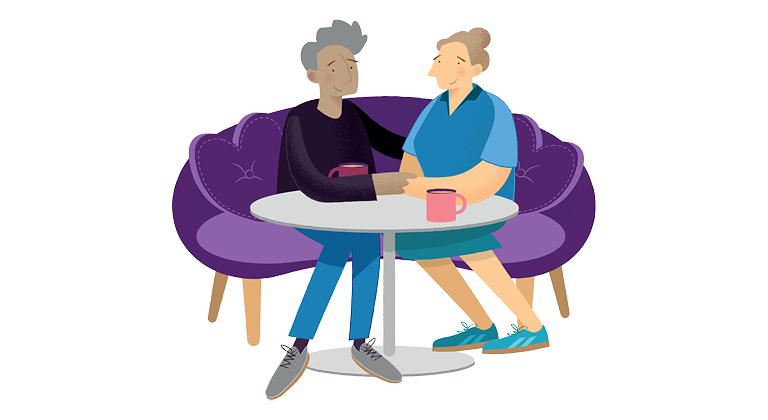Cost of living support
Four tips that could help you deal with debt
Read about four things you could try doing if you’re worried about debt.

id
Feeling worried about debt? Here are some tips you can try.
id
Over the last few years, you may have felt more pressure on your wallet thanks to high food, energy and rent prices – and you’re not alone. Citizens Advice says that 5.3 million people now live in households in debt to their energy supplier.
Plus, interest rate rises might’ve pushed up the cost of your mortgage or other loan repayments.
If you can’t afford loan repayments or household bill payments, you might be in what’s known as problem debt. But try not to feel embarrassed – debt can happen to anyone at any time. And do try not to panic. There are things you can do now that could potentially give you a bit of reassurance and improve your situation.
1. Understand your debt
Some debts will be more urgent than others. MoneyHelper can help you figure out which ones you need to prioritise.
The Citizens Advice website can also help you understand if you need to pay a debt, and what kind of debts you might not be responsible for. It also looks at different kinds of debts and can give you more information about contacting your creditors.
2. Create or review your budget
A budget can’t take away your debt overnight, but it can still be useful.
Budgeting typically involves pulling together things like payslips, bills, receipts and bank statements. This could give you a clearer idea of how much debt you have and how much money you’ve got coming in. And this could help you plan out how to reduce your debt. For example, you might find a way to free up a bit of money to put towards debt repayments.
Understanding your income and outgoings might also be useful if you’re planning on getting debt advice, as a debt adviser will want to know about your financial situation.
You can read more about how to budget and get tips on how to make your money go further in our guide.
3. Check you’re getting what you’re eligible for
It’s worth making sure you’re getting the government benefits you’re entitled to. For example, you might be able to claim benefits like Universal Credit, Pension Credit or Carer’s Allowance.
If you qualify for any benefits, it could mean you end up with more money to put towards paying off your debts.
There’s a tool on GOV.UK that you can use to check what benefits and financial support you might be eligible for. You can also use a benefits calculator.
The charity Turn2us have a Grants Search tool. You can use it to check if you’re eligible for any charitable grants, which you don’t have to pay back.
4. Get debt advice
A debt adviser will usually ask about your income and outgoings, who you owe money to, and how much your debts are. They’ll recommend options to help you handle your debt problems.
You can get free impartial debt advice from StepChange Debt Charity or Citizens Advice online or over the phone. Citizens Advice also have advice centres in England, Wales and Scotland, so you may be able to get help in person. MoneyHelper can also point you in the direction of other organisations you can go to for debt advice.
Your adviser should support you without any judgement. And you can let them know if you think you need additional support (for example, if you have a physical or mental health condition).
Remember, if your debt is making it difficult for you to cope, helplines like Samaritans can help. You can call Samaritans for free on 116 123. They are there day or night, for anyone who needs someone to listen without judgement or pressure.
Wondering what to do about your pension plan?
If you’re worried about debt and you're paying into a pension plan, you might feel tempted to stop or reduce payments into it. But doing this means you’d miss out on tax benefits and potentially your employer’s payments into your plan. And you could end up with less in your pot in the future. So you’ll need to think very carefully about what’s right for your circumstances.
If you’re struggling to afford payments into your plan, you may be able to reduce payments or take a payment holiday. If one of these options is right for you and you have a Standard Life personal pension plan, you can go online or give us a call. If your employer set up your Standard Life plan, you might need to get in touch with them to find out what you can do.
You can restart payments when the time is right for you, so you can then continue to save for your future in a tax-efficient way. You could even set a reminder for a future date to review whether you’re ready to start paying in again.
Don’t forget, you can visit our website to help you find support with physical and mental health, big life events, and more.
The information here is based on our understanding in March 2024 and shouldn’t be taken as financial advice.
A pension is an investment and its value can go down as well as up and may be worth less than was paid in.
Standard Life accepts no responsibility for information in external websites. These are provided for general information.



